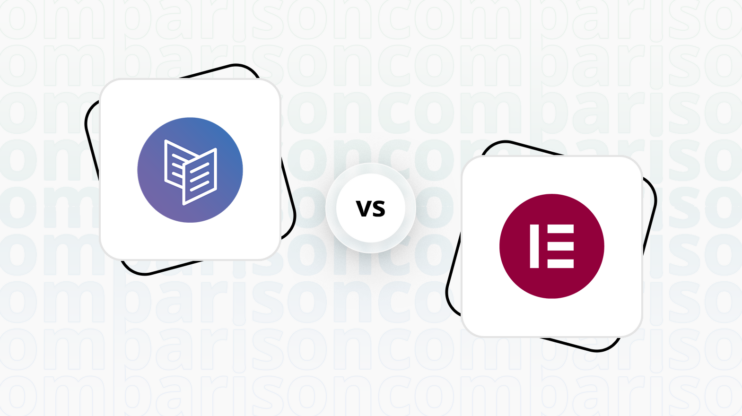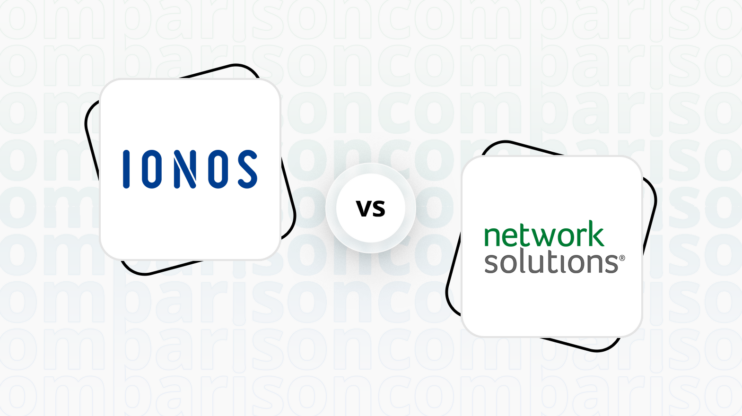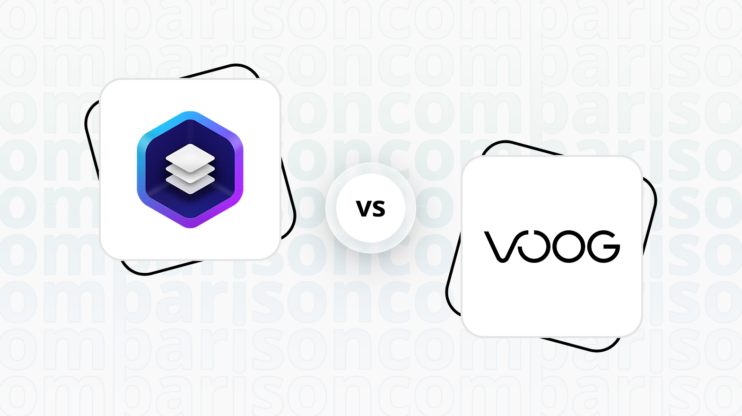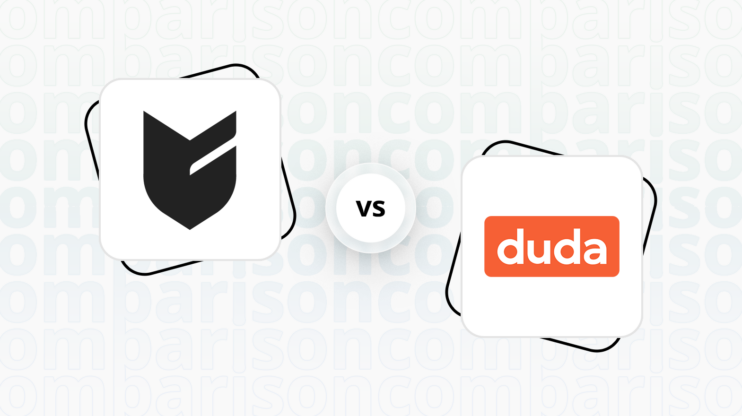Final verdict
Between GoDaddy and Web.com, GoDaddy emerges as the more versatile and user-friendly option, particularly for users prioritizing design, ease of use, and ecommerce capabilities.
-
GoDaddy (Overall Grade: 7.5/10)
excels with its extensive collection of over 1500 website templates, user-friendly platform, and comprehensive ecommerce features. It offers a wide range of learning resources, making it suitable for both beginners and seasoned users. Additionally, GoDaddy’s hosting quality, with a 99.9% uptime guarantee and various hosting types, ensures reliability and performance. Its customer support and marketing features further enhance its appeal to a broad audience. -
Web.com (Overall Grade: 5.8/10)
, while offering a platform aimed at users without coding expertise, falls short in comparison, particularly in design functionalities and ease of use. Its ecommerce capabilities and website editor are competent but do not match the flexibility and depth provided by GoDaddy. However, Web.com stands out in security measures and AI capabilities, offering comprehensive services focused on private data storage and protection, and a range of AI-driven features.

|

|
|
|---|---|---|
|
Design functionalities & templates |
8.0 |
6.4 |
|
Ease of use |
8.2 |
6.4 |
|
Ecommerce |
7.2 |
6.3 |
|
Website Editors |
6.7 |
6.6 |
|
Product testing options |
8.1 |
0.2 |
|
Price |
7.9 |
7.4 |
|
Hosting quality |
7.8 |
5.9 |
|
Website speed optimization |
7.6 |
5.8 |
|
Plugins and integrations |
7.3 |
6.7 |
|
Marketing features |
7.3 |
7.0 |
|
Customer support |
8.5 |
7.3 |
|
Security |
6.8 |
7.6 |
|
AI capabilities |
7.5 |
7.3 |
|
User Management |
7.3 |
5.2 |
| Overall |
7.5 |
5.8 |
Best for ecommerce
 7.2
7.2
 6.3
6.3
Verdict
: GoDaddy offers a more robust ecommerce solution with higher flexibility and features compared to Web.com, making it better suited for businesses looking to grow online.
-
GoDaddy
: With a score of 7.2, GoDaddy shines in ecommerce thanks to its comprehensive tools for product and order management, flexible shipping options, and integrated payment processing. Its platform is designed to cater to a wide range of ecommerce needs, from beginners to more advanced users looking for detailed reports and marketing features. -
Web.com
: Scoring 6.3, Web.com provides essential ecommerce features that can support small to medium-sized businesses. It focuses on ease of use with AI-driven design options and secure payment solutions. However, it may not offer the same level of customization and scalability as GoDaddy.
Best for informational & business websites
 7.9
7.9
 6.5
6.5
Verdict
: GoDaddy is better suited for informational and business websites, offering superior design options, ease of use, and hosting capabilities.
-
GoDaddy
: With a score of 7.9, GoDaddy stands out for its comprehensive services tailored to business and informational websites. It offers a wide range of templates, user-friendly design tools, and robust hosting solutions, making it an ideal choice for businesses looking to establish a strong online presence. -
Web.com
: Scoring 6.5, Web.com provides a solid platform for website creation, especially for those without coding skills. However, it falls short in comparison to GoDaddy in terms of design versatility and overall performance, making it a less favorable option for businesses aiming for growth and scalability.
Detailed comparison
Design functionalities & templates
Design FunctionalitiesRepresents how well each platform allows for creative design and customization of websites.Score Components:
- Template Variety (30%): Range and quality of design templates.
- Customization (30%): Flexibility and options for design alterations.
- User Interface (20%): Ease and intuitiveness of the design process.
- Responsiveness (10%): Adaptability to different devices and screen sizes.
- Innovation (10%): Unique design features and tools.
 8.0
8.0
 6.4
6.4
Winner: GoDaddy.
GoDaddy’s extensive collection of over 1500 website templates and advanced customization options make it the preferred choice for users seeking versatile and visually appealing website designs.
GoDaddy provides an extensive collection of over 1500 website templates catering to diverse industries and design preferences. These templates cover business, ecommerce, creative, personal, and non-profit sectors, offering various styles such as modern, classic, bold, minimalist, and content-focused. With customization options, mobile responsiveness, and a combination of free and premium templates, GoDaddy aims to meet the needs of users seeking versatile and visually appealing website designs.
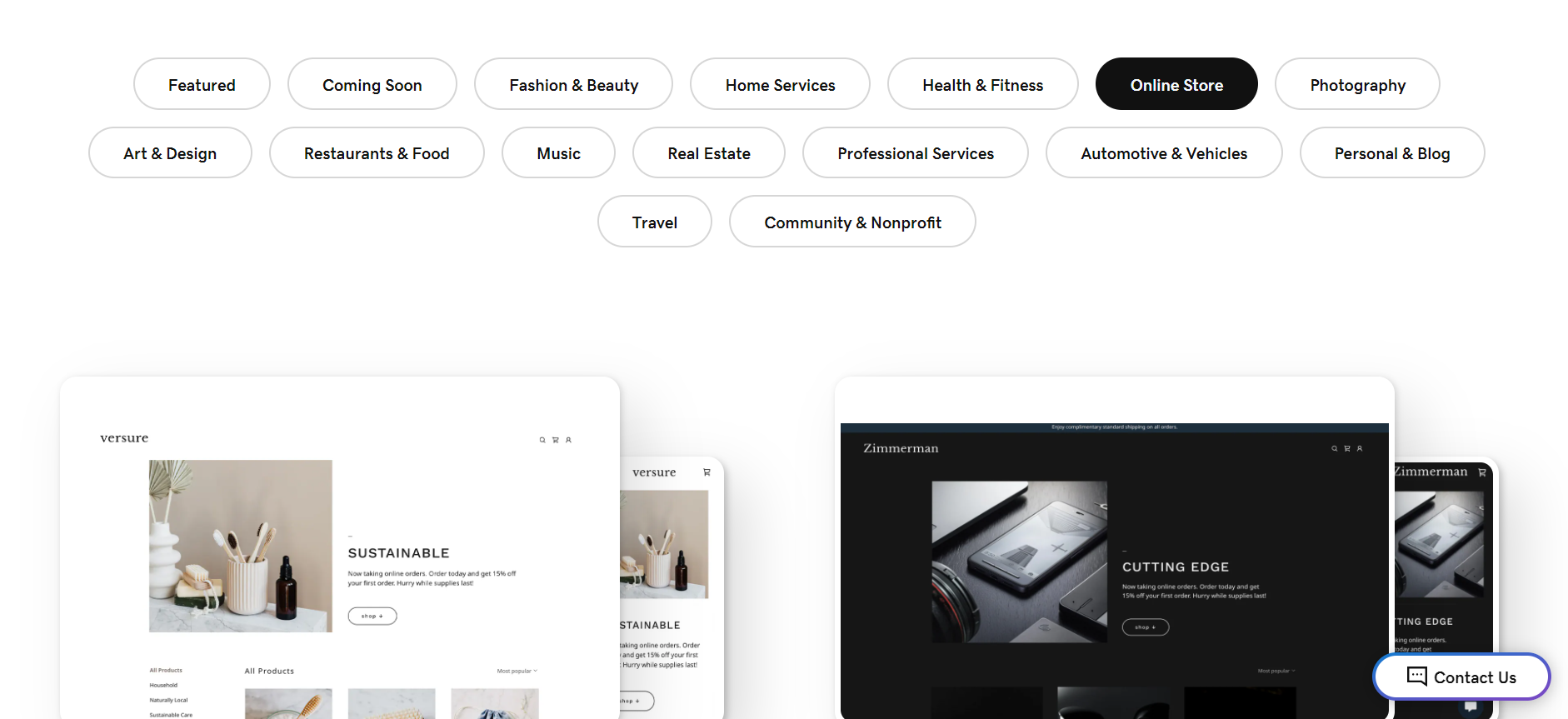

On the other hand, Web.com offers over 100 website templates designed to cater to a broad spectrum of industries and personalization needs. These templates are structured to be straightforward in customization, allowing users to easily adapt their chosen designs to suit their unique brand identity through the platform’s editor.
Get a head start on website creation with AI
Create a custom website tailored to your business needs 10X faster with 10Web AI Website Builder!
Ease of use
Ease of useReflects the platform’s overall user-friendliness.Score
Components:
- Learning curve (40%): Quickness and ease of getting started.
- Interface design (30%): Simplicity and intuitiveness of layout.
- User guidance (20%): Quality of tutorials and support.
- Flexibility (10%): Adaptability to various user skills.
 8.2
8.2
 6.4
6.4
🏆 Winner: GoDaddy
. Scoring 8.2, GoDaddy’s user-friendly platform is popular among beginners due to its easy-to-use features. Web.com, with a score of 6.4, offers a feature-rich editor and customizable templates but may not be the best fit for those seeking quick, simple website setup.
Learning Resources
🏆 Winner: GoDaddy
. GoDaddy offers a range of learning resources tailored to different services, including online documentation, video tutorials, community forums, and live sessions. Web.com provides AI-powered tools and a comprehensive knowledge base, but lacks a large community of users across various platforms.
For ecommerce
EcommerceMeasures the platform’s effectiveness in supporting online business activities.Score Components:
- Ecommerce themes and templates (20%): Variety and design of templates.
- Product management (25%): Ease of managing and organizing products.
- Payment options (25%): Variety and convenience of payment methods.
- Ecommerce features (20%): Features for managing an ecommerce store.
- Integration (10%): Compatibility with external e-commerce tools and services.
 7.2
7.2
 6.3
6.3
GoDaddy and Web.com both offer ecommerce capabilities, but they cater to different needs and preferences. GoDaddy’s ecommerce features provide a user-friendly experience for setting up and managing online stores, with integrated payment processing, flexible shipping options, and comprehensive tools for product and order management. On the other hand, Web.com offers a suite of ecommerce features aimed at simplifying the creation and management of online stores, including AI-driven design options, customizable templates, and secure payment solutions.

|

|
|
|---|---|---|
|
Ecommerce themes and templates |
6.5 |
5.5 |
|
Product page customization |
6.0 |
6.0 |
|
Payment processing and commissions |
7.5 |
6.5 |
|
POS capabilities |
6.0 |
4.0 |
|
Payment gateways |
7.0 |
7.0 |
|
Product numbers |
7.0 |
5.0 |
|
Additional ecommerce features |
6.5 |
6.0 |
GoDaddy ecommerce features:
- Payment processing
- Shipping options
- SEO tools
- Email marketing features
- Social media integrations
- Detailed reports
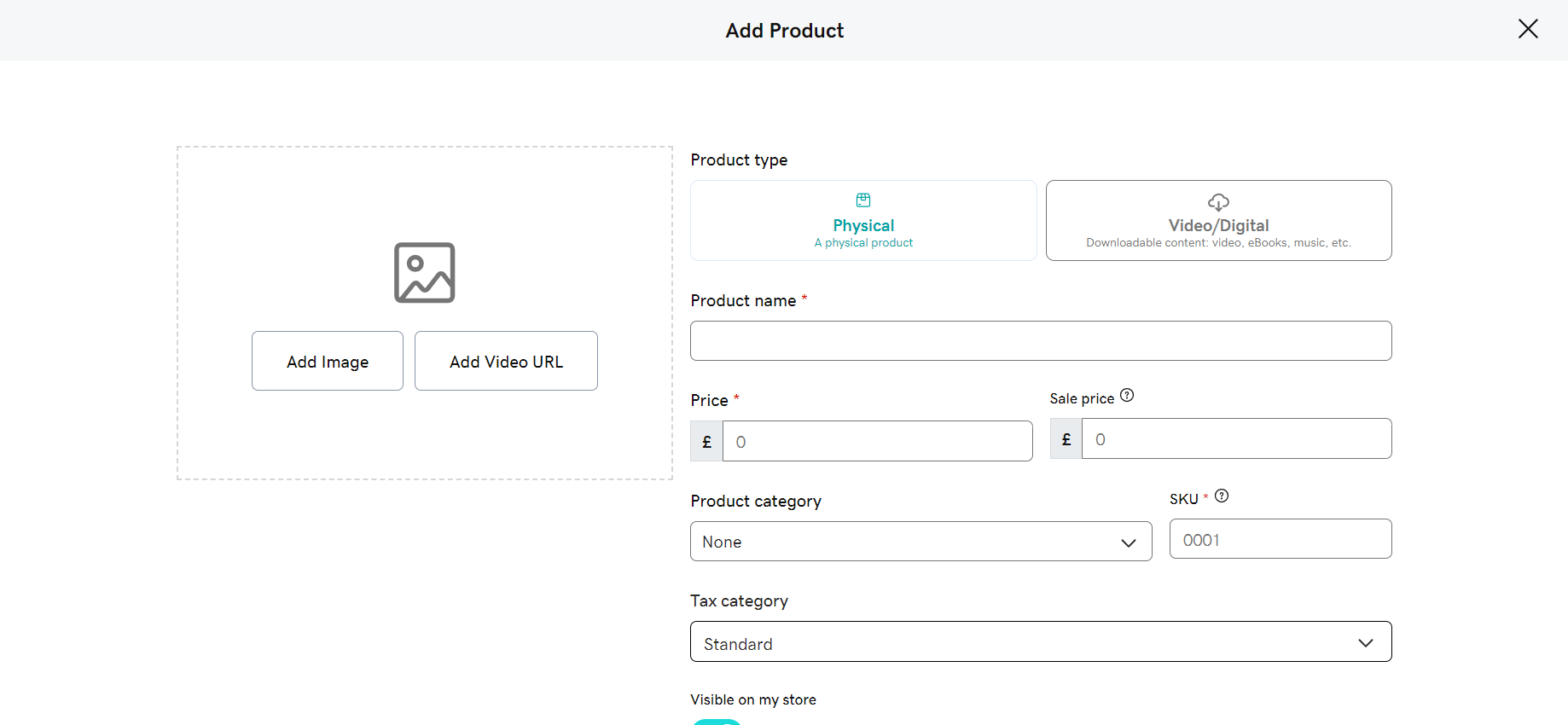
Web.com ecommerce features:
- Product listing
- Marketing Features
- Shipping options
- Payment Gateways integration
Ecommerce themes & templates
GoDaddy offers around 70-80 ecommerce themes, covering diverse industries and styles. While generally mobile-friendly with basic customization options, these themes may lack the niche variety and cutting-edge designs found on dedicated ecommerce platforms. Web.com, on the other hand, provides around 15 ecommerce templates designed to help businesses quickly launch and customize their online stores. These templates are compatible with Web.com’s website builder, facilitating straightforward customization and integration for digital storefronts.
Product page customization
GoDaddy’s ecommerce platform offers users basic customization options like editing content, adding images, and adjusting layouts. For advanced customization, coding knowledge is required, enabling features such as custom CSS, third-party app integrations, and the creation of unique product page templates. Web.com’s website builder offers a suite of tools for e-commerce stores, including product category management for organizing inventory and improving navigation, and product listing features for adding detailed product information and images.
Payment processing
GoDaddy Payments provides a versatile solution for online, in-person, and phone payments with a tiered pricing structure. Generally, online transactions have the lowest fees (2.3% + 30¢), while in-person and manually entered transactions have slightly higher rates (2.3% + 0¢). Web.com supports popular payment gateways like PayPal, Stripe, and all major debit and credit cards, ensuring a wide array of payment options for customers. Details on transaction commissions, particularly whether Web.com imposes additional fees on transactions processed through these gateways, were not clearly stated in the reviewed sources.
Website Editors
Website EditorsEvaluates the platforms’ website building and editing capabilities.Score Components:
- Customization tools (40%): Range and power of editing features.
- Editor usability (30%): User experience within the editor.
- Design flexibility (20%): Freedom in layout and design changes.
- Update and maintenance ease (10%): Simplicity of updating and maintaining the site.
 6.7
6.7
 6.6
6.6
🏆
Winner: GoDaddy
. GoDaddy, with a score of 6.7, offers a user-friendly drag-and-drop tool enabling website creation without coding. It offers pre-designed templates, a mobile-friendly interface, basic SEO tools, and ecommerce integration, making it accessible for beginners, with affordable pricing plans and an all-in-one solution. However, it has some design limitations, basic features compared to dedicated platforms, a learning curve for extensive use, and potentially limited third-party app integrations.
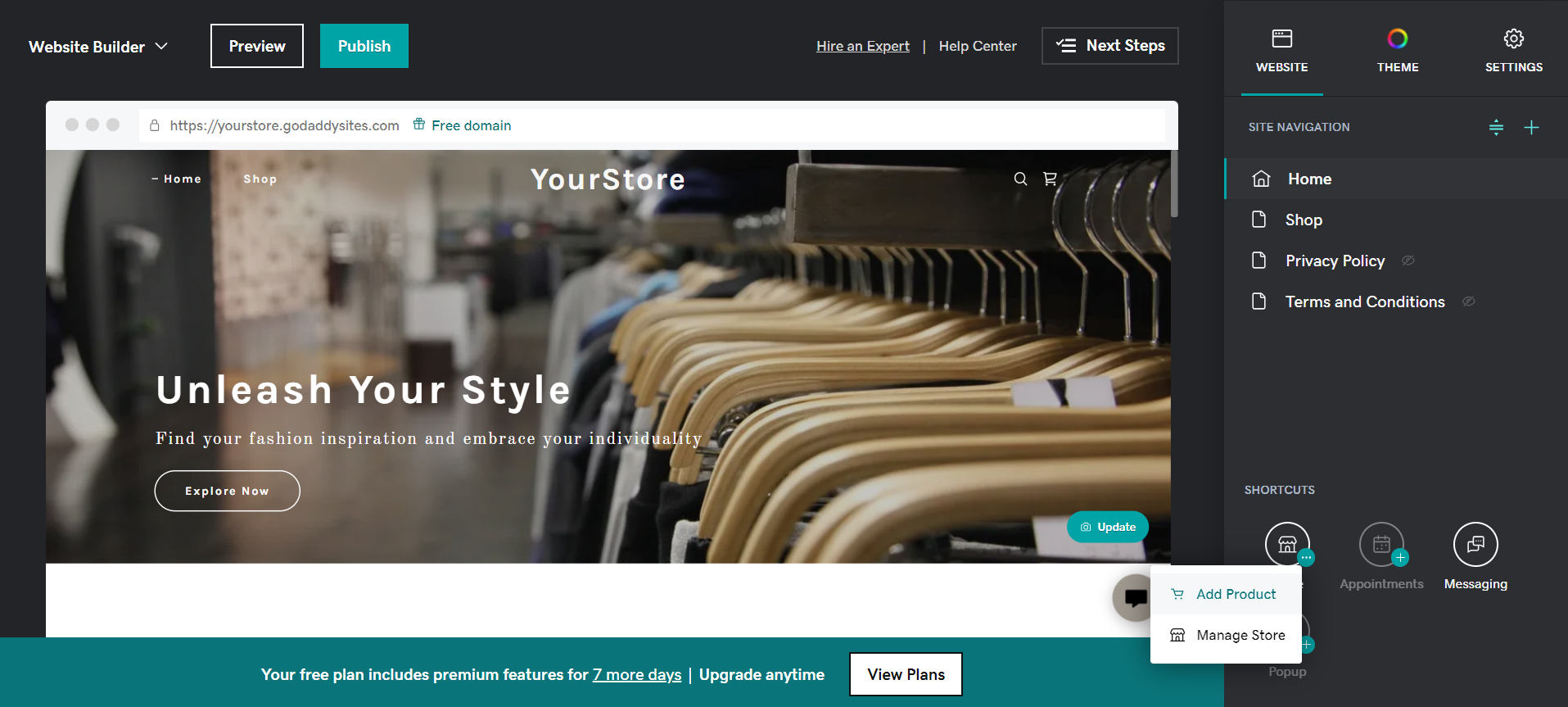
Web.com’s editor, scoring 6.6, offers a user-friendly platform with a variety of templates and a drag-and-drop interface for easy customization, albeit with some creative limitations due to its row-based layout. It supports basic e-commerce capabilities suitable for small businesses, alongside features like analytics, social media integration, and email services. However, for more advanced functionalities like promotional pop-ups, calendars, or comprehensive blogging tools, the platform may fall short unless users are willing to add custom code.
Mobile editor/app
 5.5
5.5
 0
0
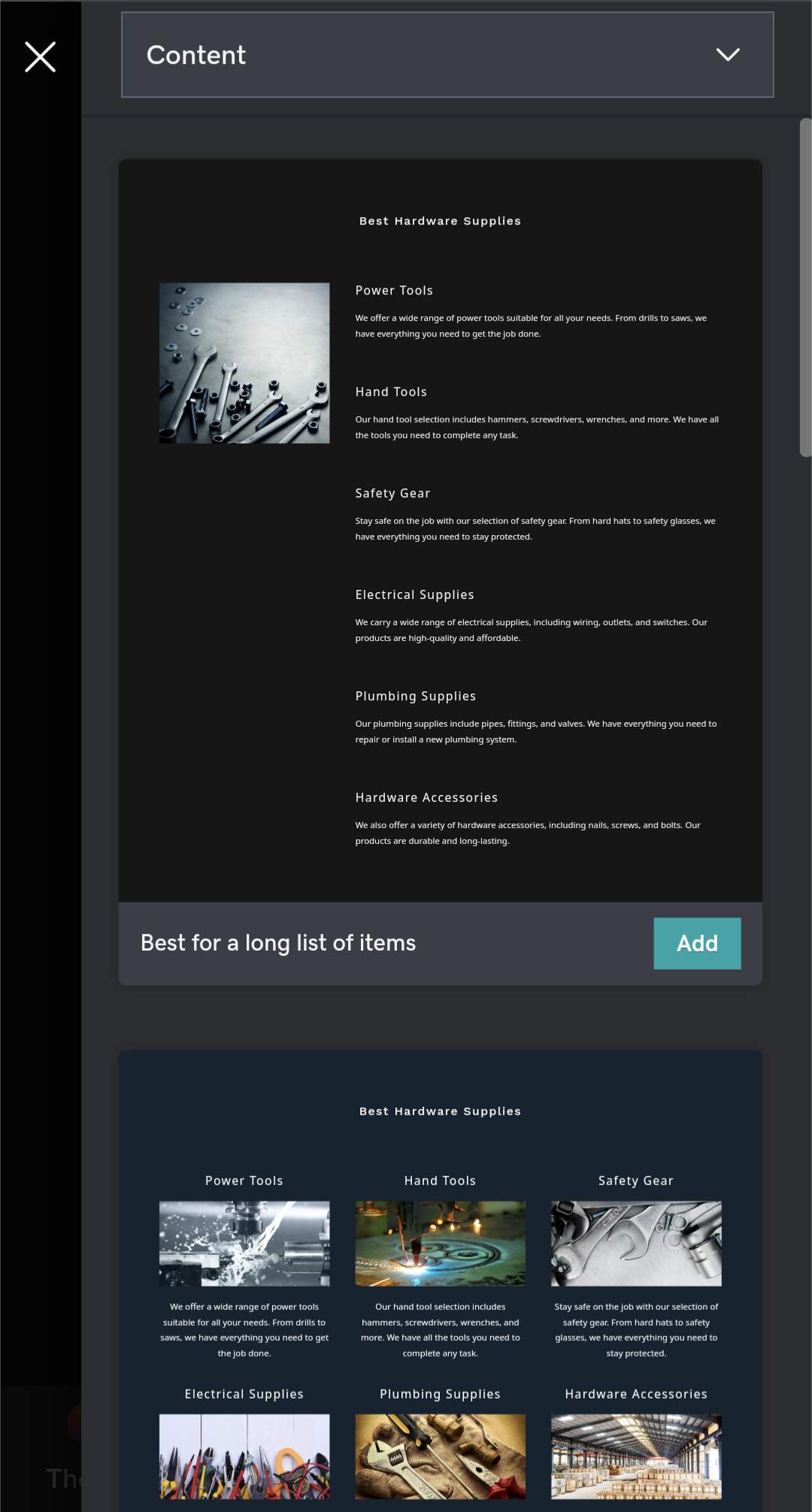
🏆
Winner: GoDaddy
. Neither GoDaddy nor Web.com offer a dedicated mobile app for editing websites. However, GoDaddy allows users to log into their account and access the website builder through a mobile web browser, providing some level of mobile editing capability. On the other hand, Web.com does not offer any mobile editing capabilities, making GoDaddy the clear winner in this category.
Product testing options
Product Testing OptionsAssesses the options for trying out platform features before commitment.Score Components:
- Trial quality (40%): Extent and usefulness of the trial or free version.
- Feature accessibility (30%): How many features are available to test.
- Trial duration (20%): Length of the trial period.
- Ease of transition (10%): Smoothness of moving from trial to paid plans.
 8.1
8.1
 0.2
0.2
Overall Result
:
GoDaddy Wins
. GoDaddy scores 8.1, significantly higher than Web.com’s 0.2. GoDaddy offers a free version and a 30-day money-back guarantee, allowing users to explore all features of any paid plan and get a full refund if not satisfied. On the other hand, Web.com does not offer a free or trial version, and users cannot test any features before purchasing a plan. Their money-back guarantee is also much shorter, only 3 days.

|

|
|
|---|---|---|
|
Free Plan |
Yes |
No |
|
Trial Duration |
No (30-day money-back guarantee) |
No |
|
Testing Premium Features |
Yes |
No |
Price
PriceLooks at the cost-effectiveness and value for money of each platform.Score Components:
- Plan value (40%): What each pricing tier offers.
- Transparency and clarity (30%): Clearness of pricing structures.
- Flexibility of plans (20%): Range of options to suit different budgets.
- Hidden costs (10%): Additional expenses not included in the plan.
 7.9
7.9
 7.4
7.4
GoDaddy and Web.com offer a range of pricing plans, with GoDaddy providing more options.

|

|
|
|---|---|---|
|
Free |
Free ($0/month): Build a basic website with limited templates, storage, and features. Ideal for testing the platform. |
No offering at this amount. |
|
$0-$8 |
Basic ($5.99/month): More templates, custom domain support, email marketing, SEO tools, social media integrations, analytics. Ideal for personal websites and small businesses. Value for price: 6.5 |
No offering at this amount. |
|
$8-$10 |
Premium ($9.99/month): All Basic features + blog, ecommerce with product listings and payments, advanced marketing tools, and analytics. Ideal for businesses with online sales or growing web presence. Value for price: 8.0 |
No offering at this amount. |
|
$10-$18 |
Commerce ($15.99/month): All Premium features + advanced ecommerce tools like cart recovery, discounts, reviews, memberships, and unlimited products. Ideal for businesses with significant online sales and complex product offerings. Value for price: 9.0 |
No offering at this amount. |
|
$18-$20 |
Pro ($19.99/month): All Commerce features + priority support, higher bandwidth, website security, and CDN. Ideal for businesses with high traffic and critical online presence. Value for price: 9.5 |
Website ($19.99/month): AI-powered Website Builder. Free domain & domain privacy for 1 year. Professional email for 3 months. SSL Certificate for 1 month. 1 hour expert design support. Social & email marketing tools. Value for price: 6.5 |
|
$20-$30 |
No offering at this amount. |
Website + Marketing ($24.99/month): All features in the Website plan. Enhanced marketing tools. Appointment scheduling. Value for price: 7.0 |
|
$30+ |
No offering at this amount. |
eCommerce ($34.99/month): All features in the Website + Marketing plan. Online store with secure checkout. Sell on multiple marketplaces like Facebook, Instagram, Amazon, eBay, etc. Value for price: 8.5 |
location. As a result in rare cases the prices displayed here can differ from the ones you see on their
websites.
Hosting quality
Hosting
qualityExamines the reliability and performance of the hosting solutions.Score Components:
- Uptime (40%): Consistency and reliability of website availability.
- Speed (30%): Loading times and performance.
- Bandwidth and storage (20%): Sufficiency of resources provided.
- Data centers (10%): Quality and distribution of hosting infrastructure.
 7.8
7.8
 5.9
5.9
🏆
Winner: GoDaddy
GoDaddy offers a variety of hosting types, including shared, VPS, dedicated, and WordPress hosting, with a 99.9% uptime guarantee. Their data centers are located in the USA, France, Germany, and the UK, and they also offer cloud services through AWS. Web.com, on the other hand, only offers shared hosting and does not provide uptime statistics or guarantees, nor do they disclose the locations of their data centers.

|

|
|
|---|---|---|
|
Do they offer hosting? |
Yes, included in all of their plans |
Yes, with unlimited storage and daily backups |
|
Data Centers: |
Data Centers in USA, France, Germany and UK Cloud Services Through AWS |
Web.com does not disclose the locations of its data centers |
|
Type of hosting: |
Shared Hosting, VPS Hosting, Dedicated, WordPress Hosting |
Shared hosting |
|
Uptime: |
99.9% |
Web.com does not provide uptime statistics or guarantees |
|
Uptime Guarantee: |
Yes, 99.9% |
No |
Website Speed Optimization
Website Speed OptimizationEvaluates optimization of website loading timesScore Components:
- PageSpeed Score (30%): Google’s score indicating performance optimization.
- Loading Time (30%): The average time until a website is fully interactive.
- Mobile Optimization (15%): Optimization effectiveness for mobile devices.
- Resource Optimization (15%): Optimizing images, scripts, and other heavy resources.
- CDN Usage (10%): Use of CDN to enhance speed across geolocations.
 7.6
7.6
 5.8
5.8
🏆 Winner: GoDaddy
Both GoDaddy and Web.com have strategies in place for website speed optimization, but GoDaddy’s comprehensive approach and transparency about their improvements give them the edge.

|

|
|
|---|---|---|
|
Focus |
CDN, Automatic Maintenance, Resource Optimization |
Mobile Optimized design, Code Minification, Caching, Image Optimization |
|
Performance Tools |
Not specified |
Not specified |
|
Key Strategies |
CDN, Automatic Maintenance, Resource Optimization |
Mobile Optimized design, Code Minification, Caching, Image Optimization |
|
Load Times |
Shared Hosting: 2-4 seconds, VPS Hosting: 1-2 seconds, Dedicated Server: 0.5-1.5 seconds |
Varies depending on optimization and website complexity |
|
Page Speed Scores Range |
Shared Hosting: 50-70/100, VPS Hosting: 70-85/100, Dedicated Server: 80-95/100 |
Not specified |
|
Core Web Vitals Improvement |
Infrastructure upgrades, improved server infrastructure and data centers, effective caching mechanisms, image optimization tools, automatic minification of code files, optimized templates and code structures for efficient rendering |
Not specified |
GoDaddy has a comprehensive approach to website speed optimization, including the use of a Content Delivery Network (CDN), automatic maintenance, and resource optimization. They have also made significant improvements to their platform through infrastructure upgrades, including improved server infrastructure and data centers, resulting in faster loading times. Additionally, the implementation of effective caching mechanisms, image optimization tools, and automatic minification of code files contribute to a smoother user experience and improved Core Web Vital metrics. The website builder features optimized templates and code structures for efficient rendering, further enhancing overall performance.
Web.com, on the other hand, focuses on mobile-optimized design, code minification, caching, and image optimization for speed optimization. However, they do not provide any specific information on their Core Web Vitals improvements or their PageSpeed score ranges, making it difficult to assess their performance in these areas. Their load times and PageSpeed scores are said to vary depending on optimization and website complexity.
Get a head start on website creation with AI
Create a custom website tailored to your business needs 10X faster with 10Web AI Website Builder!
Plugins and integrations
Plugins and integrationsMeasures the range and effectiveness of additional plugins and integrations.Score Components:
- Variety of options (40%): Range of available add-ons.
- Integration smoothness (30%): Ease of integrating plugins into the site.
- Quality of plugins (20%): Functionality and reliability of the options.
- Custom integration capabilities (10%): Support for custom or third-party integrations.
 7.3
7.3
 6.7
6.7
🏆 Winner: GoDaddy.
With a score of 7.3, GoDaddy offers a more comprehensive set of plugins and integrations compared to Web.com, which scores 6.7. GoDaddy’s versatility is evident in its range of marketing, ecommerce, and business productivity integrations. While Web.com provides a suite of plugins and integrations, GoDaddy’s access to the extensive WordPress plugin repository gives it an edge in terms of the breadth and depth of functionalities that can be added.
However, it’s worth noting that GoDaddy’s Website Builder offers a more limited set of built-in features compared to its WordPress Hosting options.
Marketing Features
Design FunctionalitiesRepresents how well each platform allows for creative design and customization of websites.Score Components:
- Template Variety (30%): Range and quality of design templates.
- Customization (30%): Flexibility and options for design alterations.
- User Interface (20%): Ease and intuitiveness of the design process.
- Responsiveness (10%): Adaptability to different devices and screen sizes.
- Innovation (10%): Unique design features and tools.
 7.3
7.3
 7.0
7.0
🏆
Overall Winner: GoDaddy
. GoDaddy edges out Web.com with a slightly higher score, reflecting its more comprehensive features, particularly in social media integration and analytics and reporting. However, both platforms offer a solid range of marketing tools.

|

|
|
|---|---|---|
|
SEO Tools |
|
|
|
Email Marketing |
|
|
|
Blogging |
|
|
|
Social Media Integration |
Tools for social media linking and content sharing |
Basic social media integration |
|
Analytics and Reporting |
Basic analytics with more detailed insights on higher plans |
Basic website analytics |
|
Ads and Promotions |
Features to create and track online ads, including Google Ads |
Basic ads and promotions features |
Customer Support
Customer supportEvaluates the quality and availability of support options.Score Components:
- Response time (40%): Speed of support responses.
- Support quality (30%): Effectiveness and helpfulness of the support.
- Availability (20%): Range of support channels (phone, chat, email).
- Resource richness (10%): Quality of self-help and educational materials.
 8.5
8.5
 7.3
7.3
🏆 Winner: GoDaddy
. GoDaddy outperforms Web.com in this category with a customer support score of 8.5 compared to Web.com’s 7.3. GoDaddy offers 24/7 phone support in multiple languages, live chat, and email assistance. They also have a community forum and social media channels for additional support. For enterprise customers, GoDaddy provides dedicated account managers and priority routing for quicker issue resolution.
Web.com also offers comprehensive customer support, including 24/7 phone, email, and live chat support. However, they do not provide specialized support for enterprise customers, which gives GoDaddy an edge in this category.
Security
SecurityLooks at the platforms’ security measures and data protection.Score Components:
- Data protection (40%): Safeguards for user and customer data.
- SSL and encryption (30%): Implementation of secure connections.
- Compliance (20%): Adherence to industry security standards.
- Regular updates (10%): Frequency of security updates and patches.
 6.8
6.8
 7.6
7.6
🏆
Winner: Web.com
. Web.com’s security measures are more comprehensive, offering a range of services focused on private data storage and protection, including website staging environments and secure email solutions. Their partnership with SiteLock Security provides cloud-based security services that scan websites for malware and vulnerabilities, automatically remove malicious content, and address potential security risks.
GoDaddy, while offering robust website security features like SSL certificates, malware scanning, and web application firewalls, provides limited options for private data storage protection. Users should consider alternative solutions for comprehensive data security beyond the primary focus on web hosting.
AI Capabilities
AI capabilitiesMeasures the effectiveness of AI-driven features and tools.Score Components:
- Automation efficiency (40%): Impact of AI on streamlining processes.
- Personalization (30%): AI-driven customization for users or customers.
- AI-Assisted design (20%): Role of AI in website design and functionality.
- Data analysis (10%): Use of AI in interpreting user data and analytics.
 7.5
7.5
 7.3
7.3

|

|
|
|---|---|---|
|
AI Website Builder |
|
Web.com offers an AI website builder |
|
AI Ecommerce Features |
GoDaddy offers AI-powered eCommerce features |
Web.com offers AI-powered eCommerce features |
|
AI Content Generation |
GoDaddy offers AI content generation tools |
Web.com offers an AI Writer for content creation |
|
Additional AI Features |
|
Web.com offers additional AI features |
🏆 Winner: Web.com
. Despite having a slightly lower AI capabilities score (7.3) compared to GoDaddy (7.5), Web.com offers a more comprehensive set of AI features. It provides an AI website builder, AI eCommerce features, AI content generation tools, and additional AI features, making it a more versatile platform in terms of AI capabilities.
User Management
User ManagementAssesses the platforms’ capabilities in managing user roles, permissions, and accessibility.Score Components:
- Role Customization (40%): Flexibility in creating and defining user roles and
permissions. - Ease of Management (30%): User interface and tools for managing users.
- Access Control (20%): Effectiveness of access control measures for different user
levels. - Scalability (10%): Ability to manage a growing number of users efficiently.
 7.3
7.3
 5.2
5.2
🏆 Winner: GoDaddy
. GoDaddy and Web.com both offer user management features, but GoDaddy’s approach is more structured and detailed.
- GoDaddy’s number of users who can edit a website varies based on the hosting plan and website building tool. For Website Builder (GoCentral and Websites + Marketing), the free plan permits one user, while Deluxe and Ultimate plans allow up to five users with full editing permissions. In WordPress Hosting, there’s default support for unlimited users, each with customizable permission levels controlled through the WordPress dashboard.
- Web.com allows multiple user accounts, however the platform does not specify how many accounts are supported.
GoDaddy User Roles and Access Levels:
| Role | Description | Access Highlights |
|---|---|---|
| Account Holder | The primary owner of the GoDaddy Website Builder account. | Full access to all website builder features, domain management, hosting settings, and account settings. |
| Delegate Access | Users granted permission by the account holder to access specific parts of the GoDaddy account. | Can be given varying levels of access, from managing domains and products to making purchases on behalf of the account holder. |
| Website Editor | Users with permissions to edit and update the website through the Website Builder interface. | Can customize the website, add or edit sections (e.g., image galleries, menus), and update content. |
| Online Store Manager | Specifically for websites with e-commerce capabilities, managing product listings, orders, and payments. | Access to manage the online store, including product listings, coupons, shopping cart, shipping, and payments. |
Web.com User Roles and Access Levels:
| Role | Description | Access Highlights |
|---|---|---|
| Primary | The main account holder or primary user. | Edit primary user info Purchase products Manage and renew products and services |
| Admin | Users with administrative privileges besides the primary. | Edit payment information Add/Edit/Delete user roles Manage and renew products and services Edit WHOIS Admin and Tech user info |
| Tech | Users with technical responsibilities. | Manage and renew products and services Edit WHOIS Admin and Tech user info |
Additional Features

|

|
|
|---|---|---|
|
SSL Certificate |
|
|
|
Custom Domain |
|
|
|
Free Custom Domain Included |
|
|
|
International Domains |
|
|
|
Mobile Responsive |
|
|
|
Page Speed |
|
|
|
Website Builder Mobile App |
|
|
|
Convert a Website To An App |
|
|
|
Website Analytics |
|
|
|
Multilingual Sites |
|
|
|
Multiple Users |
|
|
User Feedback
GoDaddy’s users generally appreciate its affordability, reliability, and user-friendly interface, especially when it comes to domain registration and hosting services. However, some users have expressed concerns about occasional interface changes, perceived slowness in website hosting, and dissatisfaction with pricing increases.
Unfortunately, there is no user feedback available for Web.com to provide a comparison.
The making of this blog
We followed a clear, step-by-step process to write and research this article.
FAQ
Which platform is better for ecommerce, GoDaddy or Web.com?
Can I build an informational or business website with GoDaddy or Web.com?
How do GoDaddy and Web.com compare in terms of design functionalities and templates?
Which platform offers better customer support, GoDaddy or Web.com?
Are there any differences in the hosting quality between GoDaddy and Web.com?
Which platform is more user-friendly for beginners?
How do GoDaddy and Web.com fare in terms of website speed optimization?
Which platform has better AI capabilities?
Can I manage multiple users with GoDaddy and Web.com?
Which platform is more affordable, GoDaddy or Web.com?










